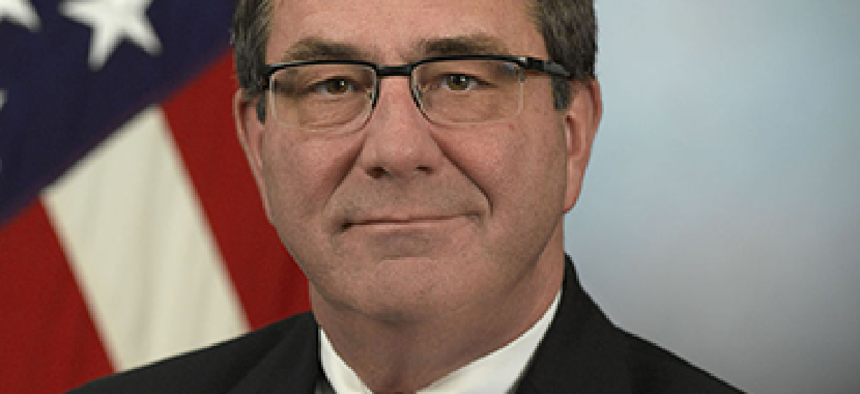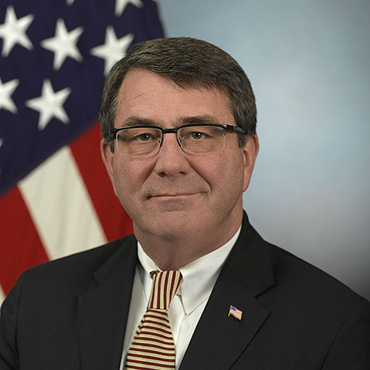Carter would bring acquisition, tech experience to top Pentagon job

Ashton Carter, who has often had a hand in Pentagon IT issues, is rumored to be Obama's pick for Defense secretary.

Ashton Carter spearheaded the first version of the Defense Department's ongoing acquisition reform initiative.
Less than a year after stepping down as deputy defense secretary, Ashton Carter has been pegged by multiple news reports as President Barack Obama's choice to replace Chuck Hagel as Defense secretary.
Carter has a significant record on acquisition and technology and close ties to top Pentagon officials. Whether those attributes translate into the bold reform of the Pentagon's bureaucracy that former officials say is needed remains to be seen.
Prior to serving as deputy defense secretary from October 2011 to December 2013, Carter was undersecretary for acquisition, technology and logistics (AT&L) for two-and-a-half years. In that role, he spearheaded the first version of the Defense Department's ongoing acquisition reform initiative, Better Buying Power.
BBP 1.0, which focuses on making business practices more efficient, overlapped with a new era of fiscal uncertainty that arguably began with the threat of a government shutdown in April 2011 and continues today. Carter took the opportunity to clamp down on acquisition projects that ballooned above their initial projected costs.
"We're not going to start [a project] that we can't prove to ourselves will be affordable in the time frame when it will be bought," he said in an April 2011 speech as AT&L undersecretary.
Carter carried that experience with him when he became deputy secretary and grew intimately familiar with the Pentagon's tug-of-war with Congress over funding. He called on lawmakers to return to normal defense budgeting, saying in a May 2013 speech that "we need the cloud of sequester dispelled, not just moved to the horizon."
Carter also led a Pentagon-wide review of budget strategy last year that looked for savings in everything from acquisition to modernization portfolios.
David Wennergren, who was assistant deputy chief management officer at DOD from 2010 to 2013, said Carter's close relationships with existing Pentagon officials could be a big asset in making the DOD bureaucracy more efficient.
Carter, who has a doctorate in physics from Oxford University, is "an extremely smart guy, a big thinker and a keen strategist, and he brings a wealth of knowledge and experience to the job of secretary of Defense," Wennergren said. "I think he will have a great relationship with [Deputy Defense Secretary] Bob Work, and the two of them will be able to press forward on a substantive reform and innovation agenda."
Wennergren added that Carter and Frank Kendall, who succeeded Carter as AT&L undersecretary, have a close relationship.
Carter would inherit a defense innovation initiative that Hagel recently unveiled to halt the erosion of America's technological edge over potential adversaries. Part of the initiative is a program that will focus on breakthroughs in fields such as robotics, big data, autonomous systems and 3D printing in the next decade and beyond.
Former DOD officials have said it will take strong leadership in the face of stiff bureaucratic resistance to propel that initiative forward.
Paul Brubaker, who served as DOD's director of planning and performance management from January 2013 to May 2014, said Hagel's willingness to call out bureaucratic sloth could have helped the initiative, but the same is not necessarily true of Carter.
Although he praised Carter's DOD pedigree, Brubaker was not optimistic about his ability to reform the Pentagon bureaucracy. "I just don't think bold innovation is in his nature, and frankly he already ran out the clock," Brubaker said, referring to Carter's more than four-and-a-half years as undersecretary and deputy secretary.
He predicted that Carter would carry out incremental reform rather than the bold overhaul the Pentagon needs.
"At best, you will see some marketing around the Better Buying Power initiatives declaring progress and possibly some embrace of the [National Defense Industrial Association's] recent recommendations that...are at best incremental improvements," he said.
NEXT STORY: What the USDS team is up to


